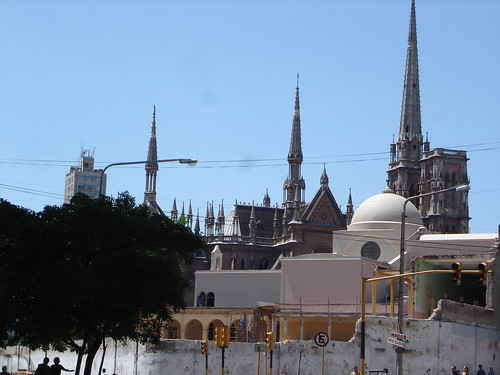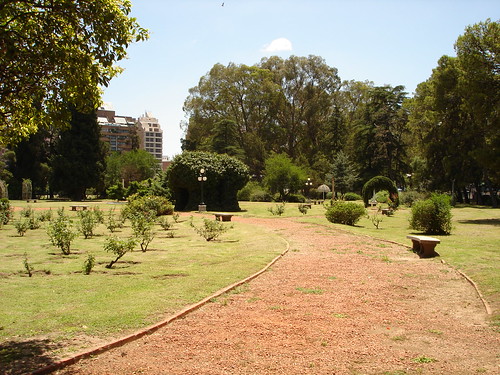
It guess everyone loves a romantic story. My last post got more comments, and more email responses, than anything I've ever written for y'all before. Thanks for the kinds words! It is great to have people interact, great fun to write that blog post, but trust me... I'm having an even better time living it! Patricia (Pato) and I have been travelling together for about 3 weeks now and things are going brilliantly. I'll write more about that when I get a chance, and more pics up, but for now I'll give you a little background and use some random pictures from Tylers solo journey (because even though he's been mute on this site lately, he is still a clever photographer visiting amazing places.).
One day I was complaining to Patricia about the fact that my money seems like it's worth less every day. Almost every time I go to an exchange booth, and see how much local currency I can get per dollar, it is lower than the time before. She rolled her eyes and told me I had no idea what bad was like. When we met, four years ago, she was overseas when her countries economy collapsed. She had the humiliating, and difficult, situation of trying to see how much she could change her Argentinian Pesos at exchange booths and seeing a big fat zero. Ouch!
In the early 1990s Argentina was plagued with rampant inflation in part due to the huge payments it spent on maintaining its national debt. The president Carlos Saúl Menem came up with an idea that didn't sound too unreasonable; he linked the Argentinian Peso to the US dollar by declaring 1peso=$1. Although its risky to bind one economy to another it was a reasonably safe bet because the economies had some strong similarities. The US, at that time, had been led for over a decade by Republicans who enthusiastically borrowed money to finance tax cuts and deep military spending. The debt hobbled the US economy, much the way Argentinas debt crippled its, so the two countries functioned in much the same way. So, linking the peso to the dollar was like tieing a rope from a bicycle to the fender of an old slow car going about your speed. They may not get up the road much faster, but it'll probably even the ride out.
In some ways, as the nineties went by, it was good for some Argentinians. Those who had money found it to be worth a lot as the US improved its own economy. Those who didn't have money in the bank, however, suffered. Argentina couldn't keep up with the US economy so soon everything they wanted to export was so outrageously expensive on the world market that no one would buy it. That made the incoming money too minimal to pay the interest on their debt.
By the end of 2001 the IMF forced Argentina to service it's debt, which effectively made it detach its value from the dollar. As every day the value was less and less, Argentinians that had money in local banks (ie, the poor and middle class) rushed to banks to withdraw what they could before it fell in value further. The government, in turn, couldn't let that happen so they declared a limit on how much people could take out. So most people just has to watch as their savings halved, dropped to a third, and then less than a quarter. Foreign exchanges that Pato visited on her trip didn't want to deal with it so they simply said Argentian money was worth nothing.
The economic collapse hurt and it hurt bad. Argentinians stormed the Pink Palace (their version of the White House), kicked out the president and trashed the place. People were killed in the many riots, and they went through 5 different presidents in 2 weeks.
Although wary of the big behomoth to the North the Argentinians are taking advantage of our shortsightedness. Much of their debt is held in dollars, and since the Republicans got back the value of a dollar has plummetted (today it is worth about half as much, compared to the Euro, when I met Patricia in Europe in 2002.) So quickly, before the US puts a Clinton back in the White House, they're paying off debt. Early last month Argentina paid off every last penny of its IMF debt before it was due, all $9.5Billion of it (the largest and most complex payment in history).
Putting all this talk about money aside, another interesting thing is what happened to Argentina when everything collapsed.Today people go on vacations in their own spectacular country. They drive perfectly usable cars that are 4+ years old. I see them all over in parks, and immaculately clean center squares, with families. The eat the worlds best steak, and sip some of the worlds best wine at night. They sip Mate on a park bench, in lovely city, with good friend. I don't know what it was like before but I feel like this whole country is pulling wool over the eyes of economists. Despite the all the statistical financial reasons why life should be horribly difficult it seems pretty damn good to me.

No comments:
Post a Comment